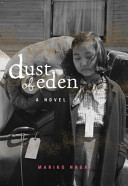2018 School Spending Survey Report
In this WWII-set verse novel, Mina Tagawa and her family are sent to the Minidoka Relocation Center. Mina's beloved grandfather dies, and her brother Nick enlists and is sent to the European front. Interspersed throughout the main text are letters Mina writes to her (imprisoned) father, her best friend, and to Nick. Nagai's writing is spare and rhythmic--it's real poetry.
In this verse novel, we first meet Mina Tagawa and her Seattle-based family just before the bombing of Pearl Harbor. Shortly after, her father is imprisoned, and the rest of the family -- Mina, her mother, grandfather, and older brother Nick -- are sent to the Minidoka Relocation Center in Idaho, where they live in poor conditions for three years. Over the course of that time, Mina's beloved grandfather dies, and Nick enlists and is sent to the European front. Interspersed throughout the main text are letters Mina writes to her father, to her best friend from home, and to Nick; Mina's school assignments; and, most poignantly, honest letters about the war that Nick writes from Europe but can never send. The sheer volume of issues raised in the slim novel (racism, tensions between immigrant generations, the nature of American identity and patriotism, the liberation of Dachau, the Hiroshima bombing) can overwhelm the personal story, leaving readers somewhat disconnected from Mina. However, Nagai's writing is spare and rhythmic -- it's real poetry. sarah ellis
ALREADY A SUBSCRIBER? LOG IN
We are currently offering this content for free. Sign up now to activate your personal profile, where you can save articles for future viewing





Be the first reader to comment.
Comment Policy:
Comment should not be empty !!!